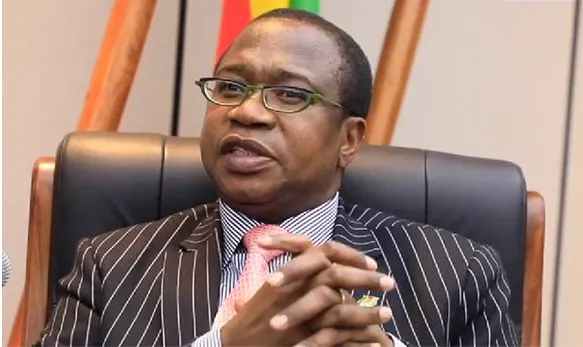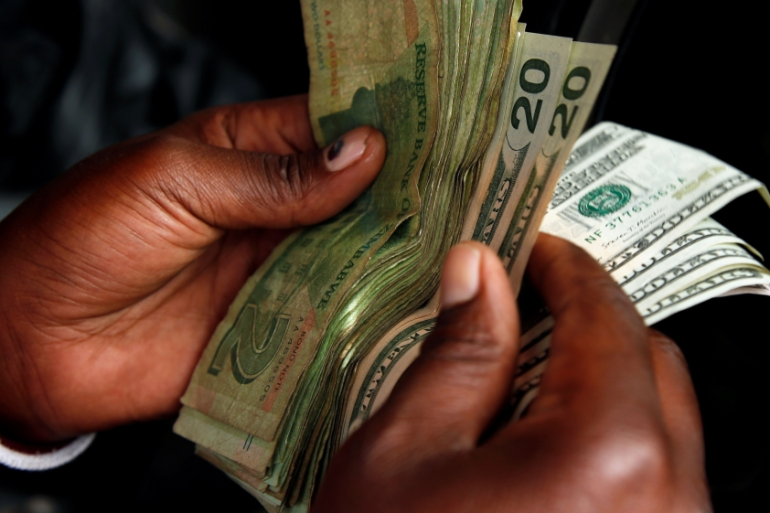
MTHANDAZO NYONI FINANCE and Economic Development minister Mthuli Ncube yesterday presented a ZW$929 billion supplementary budget for the year 2022, bringing the total purse for the year to nearly ZW$1,9 trillion.
The Zimbabwean dollar was trading at US$1:ZW$432 on the official market yesterday. Ncube’s original budget presented in November last year was ZW$968 billion.
But the Finance minister devoted 53% of the supplementary budget to civil service salaries.
Economic growth is generally underpinned by expenditure for capital projects.
However, the government has been under pressure to increase civil servants salaries following a tumultuous half year marked by deadlocks over wages.
Teachers and nurses have led the discontent that has been triggered by runaway prices and rocketing inflation.
Buying power has been affected by rioting exchange rates on the parallel market.
The crisis has not hit civil servants alone but government ministries and state agencies as well, which were allocated fresh funding during yesterday’s review.
- Chamisa under fire over US$120K donation
- Mavhunga puts DeMbare into Chibuku quarterfinals
- Pension funds bet on Cabora Bassa oilfields
- Councils defy govt fire tender directive
Keep Reading
The Finance ministry received ZW$128 billion in additional funding.
“In view of the revised projected GDP growth of 4,6% and on account of higher inflation and exchange rate depreciation, revenue collections to year end are now projected at ZW$1,7 trillion,” he said.
“The revision is necessary to allow spending agencies to meet increasing costs of undertaking originally budgeted programmes and projects that will ensure the 2022 objectives are met.
“Specifically, the additional spending will allow the government to meet increased spending on the wage bill and social protection programmes, prop up operations of ministries, as well as sustain ongoing works on projects, among other priority areas,” he added.
The other ministries, which were allocated higher funds were the ministries of Agriculture with ZW$100 billion, Defence (ZW$72 billion), Health (ZW$62 billion) and Home Affairs (ZW$61 billion).
The Office of the President and Cabinet received ZW$47 billion.
Lower packages were allocated to the ministries of Mines and Mining Development, which received ZW$1,5 billion, Information (ZW$1 billion) and Industry (ZW$1,6 billion).
Presenting the supplementary budget, Ncube said the Agriculture ministry received a bigger allocation for grain procurement. The ministry has already started preparations for the forthcoming agricultural season and has been rolling out dam construction projects.
Ncube said disbursements to line ministries and departments to June 2022 were designed and prioritised along planned and budgeted programmes and projects.
However, he said there were unforeseen but essential developments which had to be funded.
On average, Ncube said line ministries and departments had spent 58% of their allocation.
“This level of utilisation only reflects cash disbursements while some votes have commitments way above this level,” he said.
Ncube said to meet increasing operational costs of the government, expenditures to year-end were now projected at ZW$1,9 trillion, against the approved budget of ZW$968,3 billion, entailing additional spending of ZW$929 billion.
The Finance minister said the proposed supplementary budget had a financing gap of ZW$157,5 billion (1,5% of GDP) which would be met through issuances of Treasury Bills and domestic loans.
The issuances include the impending United States dollar denominated bond of US$100 million through the Victoria Falls Securities Exchange (VFEX) for infrastructure development (roads rehabilitation, health and irrigation infrastructure).

This will also be complemented by a Special Drawing Rights drawdown equivalent to ZW$60,6 billion from the International Monetary Fund.










